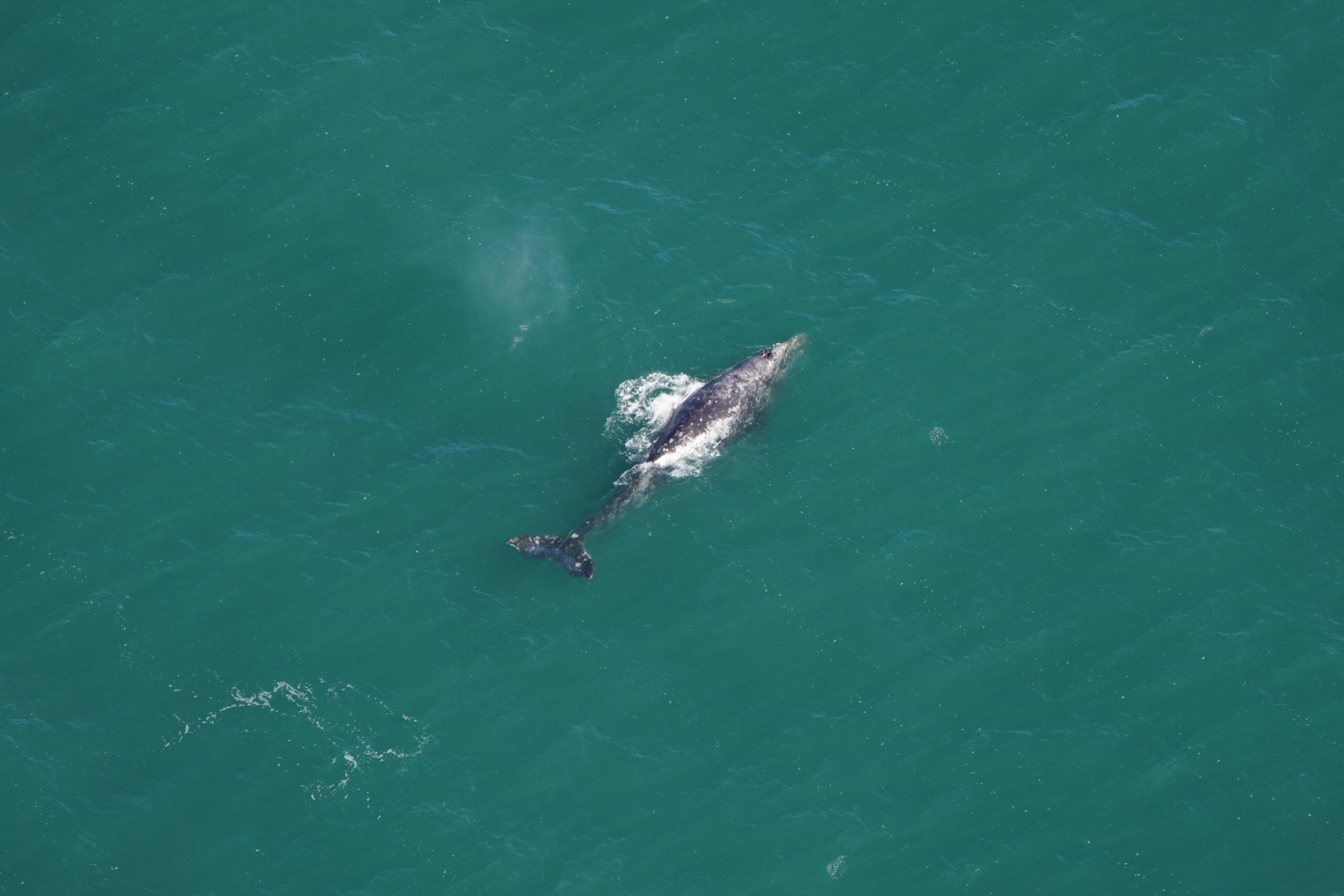On Thursday, April 10, The Trust Family Foundation Shark and Ray Touch Tank will be closed until 10:30 a.m. for routine animal care.

BOSTON, MASS. (March 5, 2024) – In an incredibly rare event, the New England Aquarium aerial survey team sighted a gray whale off the New England coast last week, a species that has been extinct in the Atlantic for more than 200 years.
**PHOTOS AVAILABLE HERE, WITH CREDIT TO NEW ENGLAND AQUARIUM**
Aquarium scientists were flying 30 miles south of Nantucket on March 1 when they sighted an unusual whale. The animal repeatedly dove and resurfaced, appearing to be feeding. The aerial survey plane circled the area for 45 minutes, allowing observers to capture additional photos. After the encounter, the observers reviewed the images and confirmed their suspicions: It was a gray whale.
“I didn’t want to say out loud what it was, because it seemed crazy,” said Orla O’Brien, associate research scientist in the Anderson Cabot Center for Ocean Life at the New England Aquarium, who has been flying aerial surveys since 2011.
While the whale was on a dive, O’Brien showed the photos to Research Technician Kate Laemmle, who was also in the plane.
“My brain was trying to process what I was seeing, because this animal was something that should not really exist in these waters,” said Laemmle. “We were laughing because of how wild and exciting this was—to see an animal that disappeared from the Atlantic hundreds of years ago!”
Gray whales are regularly found in the North Pacific Ocean and are easily distinguished from other whale species by their lack of a dorsal fin, mottled grey and white skin, and dorsal hump followed by pronounced ridges. The species disappeared from the Atlantic Ocean by the 18th century, but in the last 15 years, there have been five observations of gray whales in Atlantic and Mediterranean waters, including off the coast of Florida in December 2023. Aquarium scientists believe the gray whale seen off New England this month is the same whale sighted in Florida late last year.
To explain the strange sightings, scientists point to climate change. The Northwest Passage, which connects the Atlantic and Pacific through the Arctic Ocean in Canada, has regularly been ice-free in the summertime in recent years, partly due to rising global temperatures. The extent of the sea ice typically limits the species range of gray whales, experts say, as the whales cannot break through the thick winter ice that usually blocks the Passage. Now, gray whales can potentially travel the Passage in the summer, something that wouldn’t have been possible in the previous century.
“This sighting highlights how important each survey is. While we expect to see humpback, right, and fin whales, the ocean is a dynamic ecosystem, and you never know what you’ll find,” O’Brien said. “These sightings of gray whales in the Atlantic serve as a reminder of how quickly marine species respond to climate change, given the chance.”
MEDIA CONTACT: Pam Bechtold Snyder, psnyder@neaq.org; 617-686-5068
